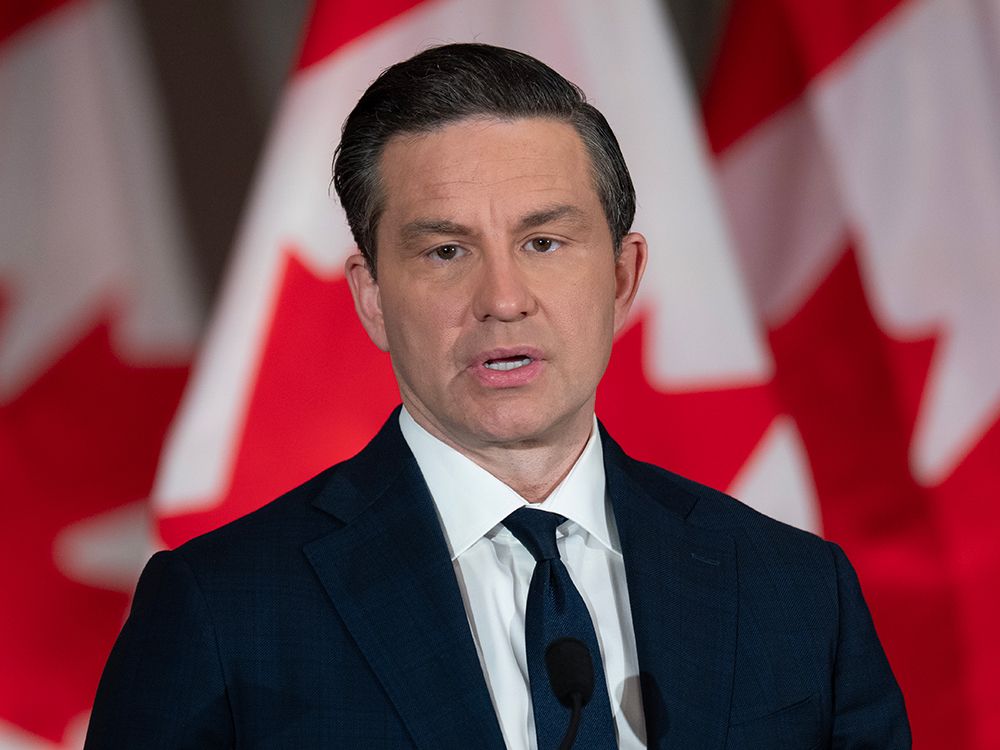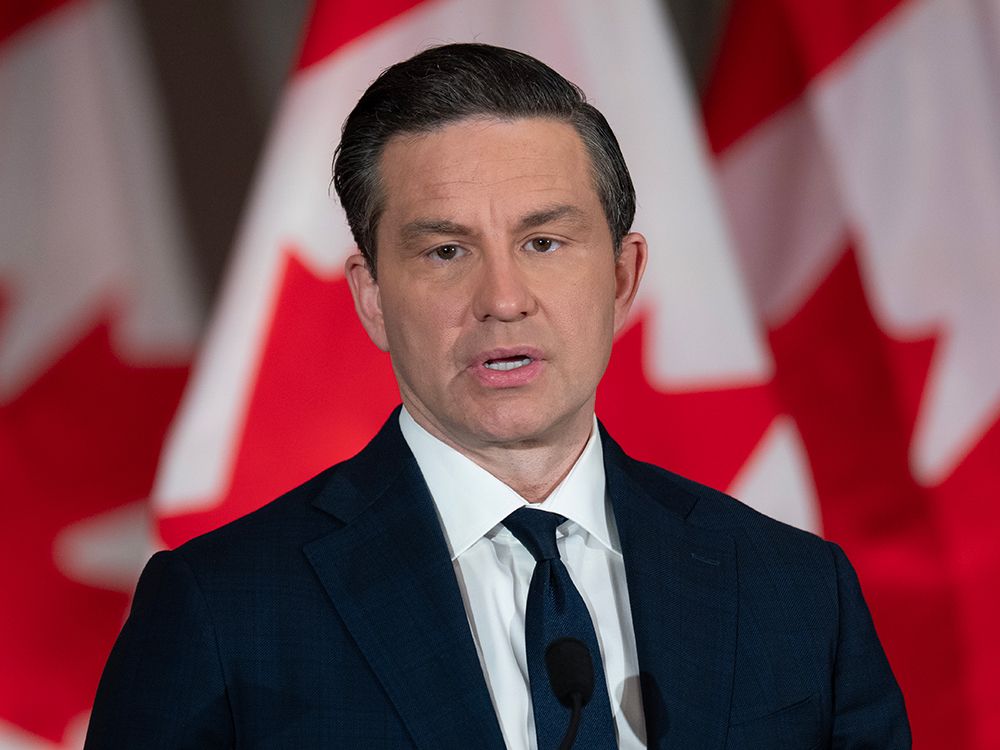
Conservative Leader Pierre Poilievre accused Prime Minister Mark Carney of “numerous falsehoods” about his financial portfolio Monday, and called on him to sell all of his personal investments to avoid conflicts of interest.
Speaking at a press conference in Ottawa, Poilievre also accused Carney of using his political pull to personally profit by advancing programs or offering endorsements that would benefit companies in his portfolio.
The accusations follow the disclosure Friday by the ethics commissioner of
. Carney had agreed with the commissioner to establish an extensive conflict-of-interest screen that would include recusing himself from any discussions directly involving Brookfield Asset Management, payment-processing giant Stripe, or a wide range of companies those organizations owned or controlled at the time the prime minister set up a blind trust earlier this year.
Before entering politics, Carney was chairman of Brookfield Asset Management, where he co-led efforts to raise capital for two major clean energy funds. He was also on Stripe’s board of directors.
Poilievre said the Liberal leader deceived voters during the federal election campaign earlier this year when he described his efforts to avoid financial conflicts.
“Mr. Carney was not upfront or honest with Canadians,” the Conservative leader said. Poilievre said that during the election campaign, Carney claimed that he had only cash and real estate holdings, and it turns out he held hundreds of stocks, stock options and deferred profits from Brookfield and other companies.
In the
early days of the election Carney said he had set up a blind trust.
“I actually don’t own – directly – any stocks in those companies,” and “I own nothing but cash and personal real estate,” Carney said at the time.
Carney also said then he no longer had any financial connection to Brookfield Asset Management and that he didn’t know what was in his blind trust, both of which Poilievre said aren’t true.
Carney’s declaration on the ethics commissioner’s website last week said the new screen will prevent him from giving preferential treatment to any of the companies with which he has a financial link. It also means that Carney cannot be involved in “any official matters or decision-making processes” that would further either his or the
interests of the 103 companies
, many of which operate in the renewable energy and real estate sectors.
The screen will be administered by Carney’s chief of staff, Marc-André Blanchard, and Clerk of the Privy Council Michael Sabia.
Poilievre said Carney hasn’t gone nearly far enough because Canadians have never before had a prime minister with such an array of potential conflicts.
Carney has said that he’s gone beyond what is necessary or convention to separate his new job from his personal finances.
If Carney doesn’t sell all of his corporate assets, Poilievre said, the prime minister may need to recuse himself multiple times per cabinet meeting to avoid conflicts.
Under this new set of procedures, Carney must remove himself from the room and make a public declaration of recusal if a matter is being discussed that involves one of the companies under his screen.
But the prime minister isn’t barred from all discussions that may affect those companies. Carney’s screen contains a caveat where he can participate in discussions or decisions on matters that broadly affect any of the 103 companies if they are part of a larger group, “unless those interests are disproportionate to the other members of the class.”
Nor is the ethics screen without challenges, because the prime minister’s job involves virtually every issue and public policy question and Carney’s screen involves so many companies. There’s also the sticky matter that his Liberal government has vowed to make Canada into a conventional and clean energy superpower, while some of Carney’s assets are directly involved in the clean energy sector.
One of the screens the prime minister will be subject to involves Westinghouse, one of the world’s largest nuclear power companies. Brookfield Asset Management acquired a majority ownership stake in Westinghouse while Carney was co-head of the investment fund.
As Poilievre pointed out, Carney mentioned Westinghouse while praising nuclear energy during a leaders’ debate during the election campaign. He also alleged Carney had promoted modular homes, heat pumps and specific kinds of jet fuel that benefited companies he has invested in.
Other noteworthy conflict of interest screens relate to some of Brookfield’s investments in India’s clean energy and renewables sector — Leap Green, Avaada Group and CleanMax — through the Brookfield Global Transition Fund, which was co-managed by Carney.
The ethics disclosure also contains an extensive list of companies — running across 16 full pages — of shares and share options Carney owns that held in a blind trust or in an investment account managed by a third party that he does not control or direct.
In his blind trust, Carney put shares of North of 60 Advisors, Stripe, Partners Value Investments LP, Cultivo Land PBC, Watershed Technology, and options and deferred share units of the Brookfield Corporation and Brookfield Asset Management.
According to Brookfield’s annual report, Carney was entitled to 209,300 stock options at US$35.13 each and 200,000 options at US$40.07 each, for a market value of more than US$6.8 million as of Dec. 31, 2024. The expiration date on these options is either 2033 or 2034.
The assets held by an investment account managed by a third party include shares from Airbnb, Amazon, American Express, Apple, Blackrock, Coca Cola, Costco, DoorDash, Lockheed Martin, Lululemon, Moderna, Netflix, Palantir Technologies, Pfizer and Uber.
Advocacy group Democracy Watch agreed that Carney should sell his investments and that his blind trust isn’t blind enough. The problems with the prime minister’s current arrangement are that he knows what’s in the trust, he chose the trustee and the instructions for the trustee and can receive regular updates.
“His blind trust isn’t blind at all because he knows what stocks he put in it,” said Duff Conacher, co-founder of Democracy Watch, which advocates for democratic reform.
— With additional reporting from Christopher Nardi and Catherine Lévesque.
National Post
Our website is the place for the latest breaking news, exclusive scoops, longreads and provocative commentary. Please bookmark nationalpost.com and sign up for our daily newsletter, Posted, here.
